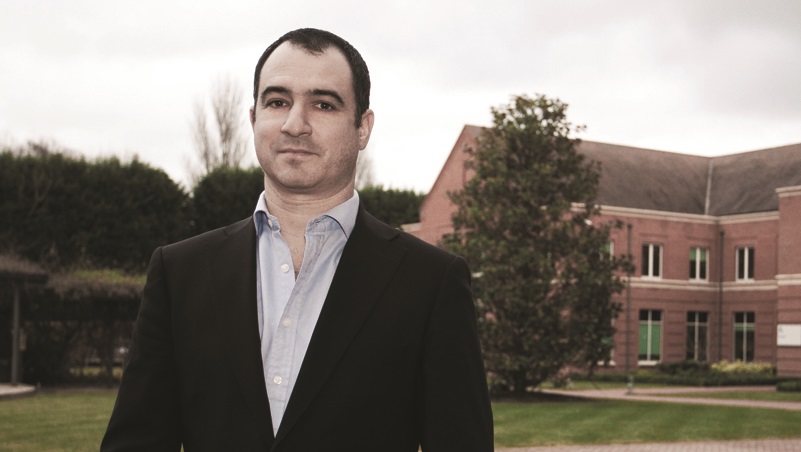Mark Barnett’s turn to reinvent himself at Tellworth Investments after a brutal period of underperformance at Invesco and the fallout of the Woodford scandal has been described as unusual but commentators argue a boutique is the best place to do it.
On Monday, Barnett (pictured) announced he was returning to the industry at Paul Marriage and John Warren’s boutique, just 11 months after his mutually agreed exit from Invesco.
The manner of Barnett’s comeback, under a cloud of poor performance, redemptions and his ties to disgraced manager Neil Woodford, is atypical for the industry.
There are plenty of examples of managers who have jumped ship from big asset managers to reinvent themselves when their star was on the rise. Anthony Bolton, Nick Train, Alexander Darwall and Barnett’s predecessor at Invesco Woodford all left their respective firms at the height of their popularity to set up their own boutiques.
“Usually, managers leave at the peak of their game when they move as it gives them a stronger negotiating hand,” says Willis Owen head of personal investing Adrian Lowcock.
Richard Buxton and Richard Pease are good examples, Lowcock says, with the former swapping Schroders for Old Mutual Global Investors and the latter Henderson Global Investors for Crux Asset Management. Though Lowock says both managers’ performance wasn’t as strong as their previous highs when they left, “they certainly hadn’t suffered significantly”.
A more recent example is global equity income heavyweight Nick Clay who left his successful franchise at Newton in March, joining boutique RWC in September.
See also: Nick Clay joining RWC highlights pull of boutique fund groups
Other managers have bounced back from career low-points
While rare it is not unprecedented for managers to relocate and seek a fresh start at a low point in their career.
Lowcock points out that Felix Wintle had had a “torrid period” at Neptune when he resurfaced at Tyndall in March 2017. But the performance of his £53.6m North American fund has been steady over his tenure and recently has enjoyed a spike in performance with the fund top quartile over all major time frames.
See also: Felix Wintle on his ‘once in a lifetime’ Gamestop haul
Philip Rodrigs also left with a cloud over his head, though the circumstances surrounding his departure were very different from Barnett with River and Mercantile sacking him over an alleged conduct issue, which he has disputed.
His boutique Raynar Portfolio Management opened its doors in February 2020, as the pandemic was ramping up and a year later had amassed £75m in assets under management.
Easier for big name managers to stage comeback at boutiques
Fund buyers reckon it will be easier for Barnett to stage a comeback at a boutique than at one of the fund giants.
GDIM investment manager Tom Sparke says boutiques lend themselves well to more high-profile managers who may conflict with other ‘big names’ in a larger firm.
“Although his tenure at Invesco didn’t end up as well as he would have hoped, Mark’s profile has certainly been raised in the industry,” Sparke says.
“I would have thought the name recognition would be an asset, rather than a hurdle and should help to add trust to a new fund.”
At Tellworth, Barnett will also be able to concentrate on running his strategy and analysing companies without managing a big team, like he did at Invesco, and all the corporate politics that goes with it, says AJ Bell head of active portfolios Ryan Hughes.
On the flip side, however, as one of nine investment team members at Tellworth Barnett will have to deliver the goods.
Hughes says: “Mark will know that there will be no hiding place, there will be no excuses. It’s about delivering performance for clients now.”
Won’t be a wall of money waiting for Barnett
But that doesn’t mean it will be easy for Barnett to attract money at Tellworth. “It’s going to be tough,” Hughes says. “I don’t think there will be a wall of money sat there where people are thinking, ‘Ah, great Mark Barnett’s back. I’ve been waiting for this moment’.”
Hughes says a lot of the money Barnett was previously running at Invesco was “slightly older, more mature,” which “has probably found a new home by now” if it hasn’t already flown out of his former Invesco funds.
Data from Morningstar shows assets in the funds, since renamed Invesco UK Equity High Income and UK Equity Income, have barely budged since Barnett’s departure was announced last May. The largest of the two, Invesco UK Equity High Income, saw assets fall from £3.3bn in May to £2.8bn in October but AUM climbed back up to £3.2bn in November following the Covid vaccine rally and has stayed at around that level since.
“When a manager comes back and has endured a tough period in their career, for whatever reason, it is clearly harder to attract investment,” Lowcock says.
“Investors naturally and rightly have to ask more questions and consider if there are any additional risks. Arguably, they should also be asking some of those questions even if performance has been good as there are no guarantees it will follow a manager especially when they start a new boutique.”
Market doesn’t know whether Barnett is a stock picker or macro investor
Another impediment to Barnett is that after years under Woodford’s shadow at Invesco, it’s difficult to suss out what kind of investor he is, Hughes says. “Is he a stock picker or big, macro call person? I think maybe the market doesn’t know the answer to that question.”
Barnett has been dogged by comparisons with Woodford since taking over his funds at Invesco and this only intensified following the suspension and subsequent liquidation of the Woodford Equity Income fund.
See also: Invesco prepares to rid Mark Barnett funds of unquoteds as values slashed 60%
Though Barnett made many changes to the portfolios’ largest holdings, 7IM senior portfolio manager Peter Sleep notes he did not jettison many of Woodford’s controversial unquoteds, despite having years to do so. Elsewhere he dug his heels in deeper to Woodford’s existing bets on Provident Financial and New River Reit, both of which racked up heavy losses.
If Barnett is accustomed to the larger macro calls an asset manager like Invesco might make, this could prove an awkward fit for Marriage and Warren who “don’t do macro”, according to Hughes.
In the press release announcing his appointment Barnett said he shares the “same bottom-up fundamental analysis and active portfolio management” as the Tellworth founders.
Though not much is known about Barnett’s equity income mandate for Tellworth, his fund will not hold any private investments.











